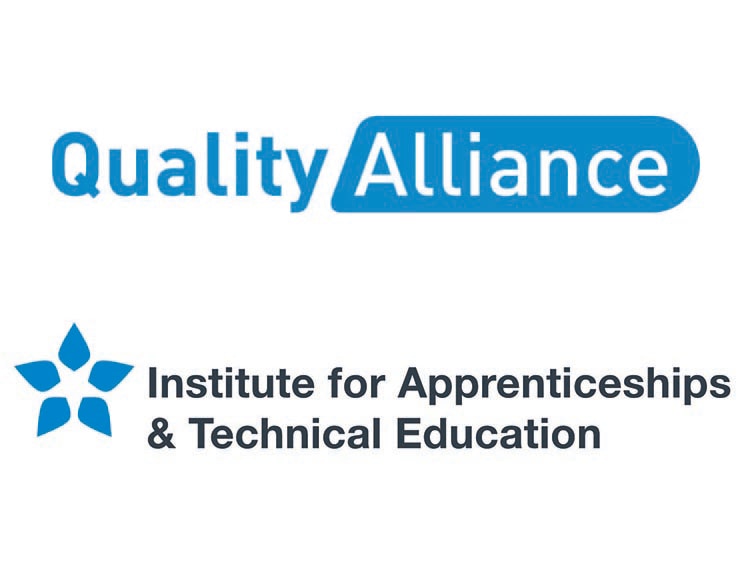Quality Strategy sets out best practice benchmarks for apprenticeships

A new Quality Strategy has been launched today (21 Mar) by the regulatory bodies concerned with ensuring apprenticeship quality, that sets out best practice expectations before, during, and after apprenticeships.
The Strategy has been developed by the Quality Alliance which is convened and Chaired by the Institute for Apprenticeships and Technical Education and includes
- The Education and Skills Funding Agency,
- Ofsted,
- Ofqual,
- Quality Assurance Agency for Higher Education (QAA) and
- The Office for Students (OfS).
The Association of Employment and Learning Providers, and the Association of Colleges, the Federation of Awarding Bodies (FAB) and Universities UK also attend and contribute to these meetings as observers.
 Sir Gerry Berragan, Chief Executive of the Institute, said:
Sir Gerry Berragan, Chief Executive of the Institute, said:
“The Quality Strategy was carefully developed with our partners on the Quality Alliance and amounts to a comprehensive commitment to ensuring that apprenticeship training and end point assessments are first rate.
“This is a major step forward for establishing the highest level of quality we expect from all apprenticeships.”
 Education Secretary Damian Hinds said:
Education Secretary Damian Hinds said:
“Apprenticeships alongside new T Levels and world-class A Level will be the gold standard choice for young people after their GCSE’s. We have made great progress to improve the quality of apprenticeships and it is vital that apprentices, parents and employers continue to trust and have confidence in them.
“The launch of the Quality Strategy is an important step and will make sure we continue to deliver apprenticeships of the highest quality, so more people can progress in their careers and employers can access the skilled workforce they need.”
The Quality Strategy stresses the shared ambition that employers should design and approve apprenticeships that consider progression and transferability of skills “at their heart” and clearly explain the knowledge, skills and behaviours required for apprentices to be competent in their work.
It also states there must be “effective and meaningful on-going dialogue” between the apprentice, employer, training provider and end-point assessment organisation so that all parties are aware of whether they are on track and how to raise concerns if they are not.
 Tom Bewick, Chief Executive of FAB said:
Tom Bewick, Chief Executive of FAB said:
“FAB welcomes the strategy of the Quality Alliance and the determination of its members to collaboratively work on the processes, systems and measures that are required to ensure quality is at the heart of every apprenticeship programme. Only by a relentless and group minded focus on quality assurance can England develop the world-class skills and productivity improvements that it needs.”
Kirsti Lord, Deputy Chief Executive of the Association of Colleges, said:
“AoC welcomes the strategy and guidance to provide clarity for all providers regarding best practice. Ensuring delivery is consistently high quality for all standards is essential to meet the training needs of apprentices, and in turn, providing a skilled workforce for employers.”
A spokesperson for Ofqual said:
“Ofqual played its full role in the development of the Quality Strategy and welcomes its publication. We now look forward to supporting its achievement, using our regulatory powers, where we are the external quality assurer of end-point assessments.”
A spokesperson for AELP said:
“AELP strongly supports and promotes high quality apprenticeships for employers and apprentices and high standards in the Quality Strategy. Good providers have a vital role in ensuring quality because they deliver all aspects of apprentice training and support, especially the on-the-job training and day-to-day development of the apprentice. This requires a robust regime for managing provider entry into the market and then ongoing provision with the right regulators and agencies controlling the appropriate aspects of the programme.”

Responses